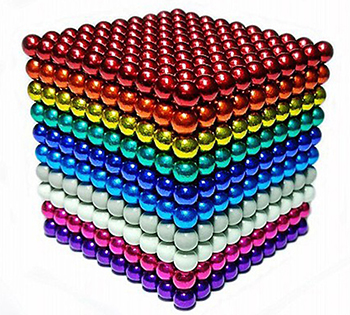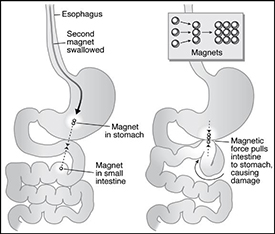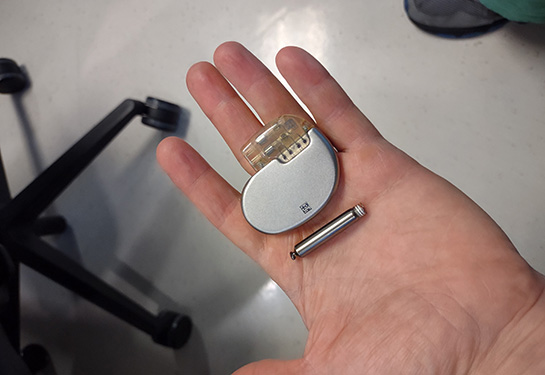Little magnets are a big health hazard when swallowed
UC Davis experts provide word of warning to parents
They are colorful, bite-size, fun to play with, and capable of punching holes in your intestines if swallowed.

UC Davis experts warn parents to steer clear of neodymium magnets. Often called rare-earth magnets, these are the strongest magnets available and they are easy to buy.
“These magnets can do a lot of damage, require surgery, or even cause death when swallowed. We are seeing more cases in our emergency room,” said Jonathan Kohler, medical director for pediatric trauma at UC Davis Children’s Hospital.
These magnets are sold loose and come in bright colors, often used as stress-relief desk toys or building kits, but easy for a small child to put in their mouth and swallow. For teens, these magnets can mimic decorative body piercings when two magnets are placed on either side of the tongue, lips or cheeks – where they can be accidentally swallowed.
“When swallowed, these magnets can attach to each other through the bowel, leading to fistulas, which are abnormal connections between two parts inside of the body, or they can create holes in the intestines,” said UC Davis pediatric gastroenterologist Sunpreet Kaur.
What to do if your child has swallowed magnets
If a parent discovers that their child has swallowed magnets, they should call poison control immediately at 800-222-1222 and take their child to the emergency room right away, Kaur said.

See what happens when these magnets are swallowed. Source: American Academy of Pediatrics.
“The sooner they get to the emergency room, the higher the chances that we can get the magnets out of the stomach. The longer they wait, the magnets can pass the stomach and then we cannot reach them and they may require surgery,” Kaur said.
If left untreated, the magnets can form holes in the GI tract.
Neodymium magnets have been sold under names such as Buckyballs, Neocube and Zen Magnets.
In 2012, the Consumer Product Safety Commission halted the sale of high-powered magnet sets and introduced a rule to take them off the market. The U.S. Court of Appeals overturned the rule in 2016.
An analysis of the National Poison Data System from 2008 to 2019 in the Journal of Pediatrics reported a 444% increase in magnet injuries from 2018 to 2019 when high-powered magnets sets re-entered the market.
Related links
UC Davis Health doctor warns parents of deadly small magnets children swallow - Fox 40



